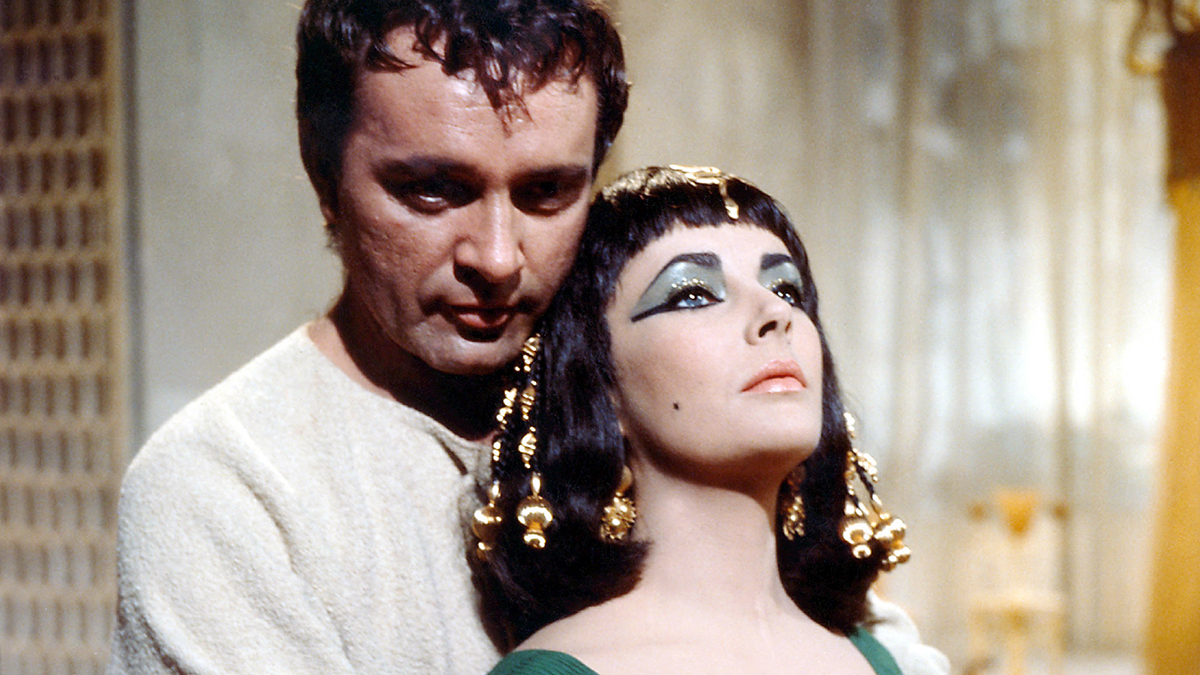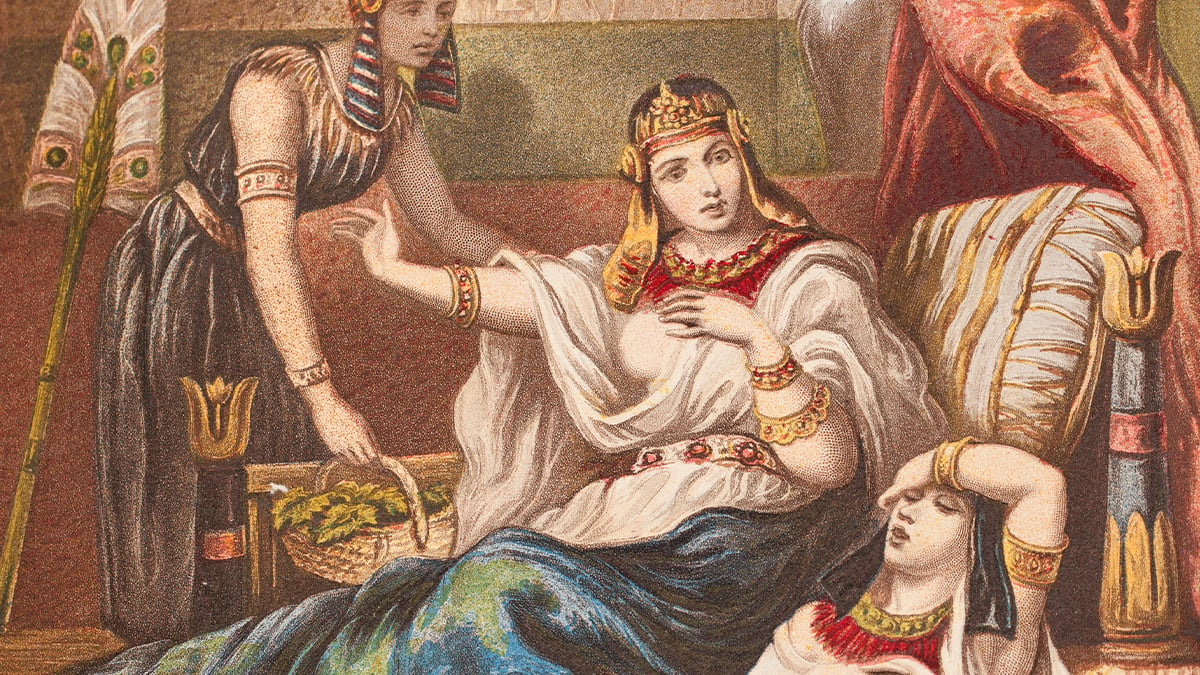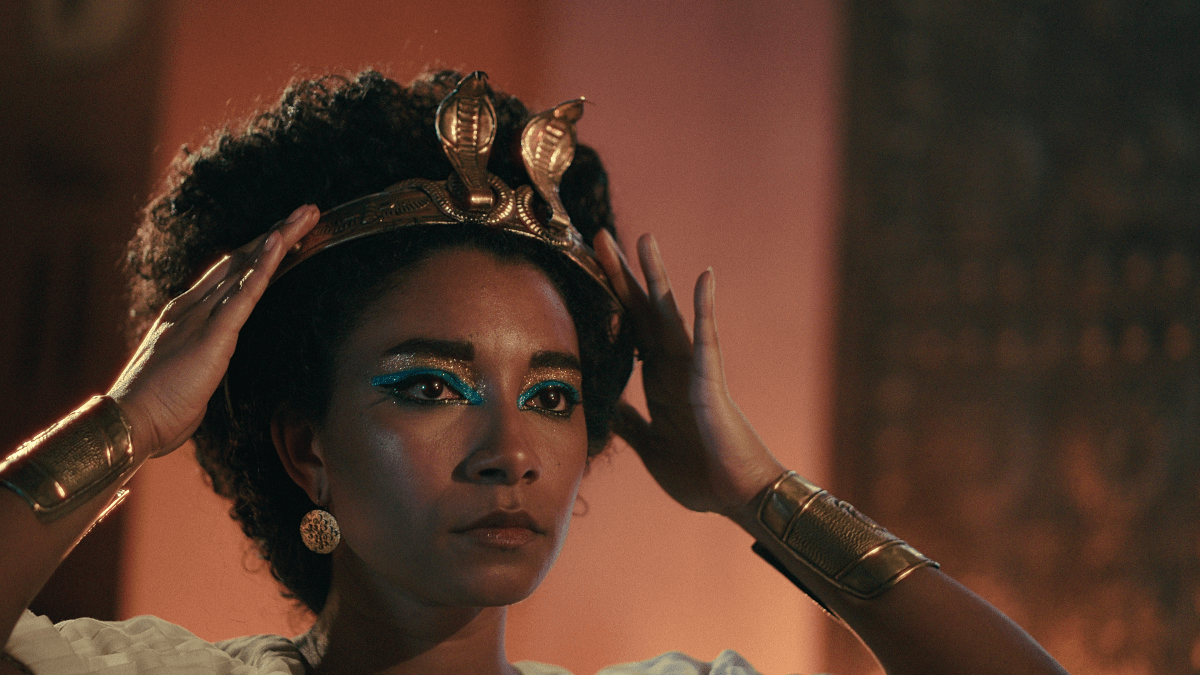Cleopatra is perhaps one of the most iconic queens to have ever gone down in the history books. Through numerous retellings, and countless renditions of her story, she has been immortalized over the centuries as a beautiful and tragic character, but an upcoming Netflix series, African Queens, looks to delve a little further.
The series, executive produced by Jada Pinkett Smith, will look at telling the stories of queens that did not make it into the Western school curriculum, the overlooked or often misrepresented women who have shaped countries, continents, and in many ways the course of mankind. Cleopatra was one such character, poised as she was on the precipice of Rome’s eventual takeover of her country, of which she served as the last Pharaoh.
For so long, we have focused on her as a great and tragic romantic figure, thanks to her relationships with both Julius Ceaser and Mark Antony and in no small part thanks to her portrayal in Shakespeare’s play, Antony and Cleopatra. But these relationships were not just about romance but political moves made by a woman determined to protect her people and her country by whatever means necessary.
Her birth and genealogy

Cleopatra was born, Cleopatra VII Thea Philopator in 70/69 BCE. She was the daughter of King Ptolemy XII Auletes, a member of the Macedonian dynasty that had ruled Egypt for centuries, between Alexander the Great’s death in 323 BCE and Cleopatra’s own death. Though many believe Cleopatra to be a true Egyptian, she was actually a descendent of Alexander’s general who went on to become King Ptolemy I Soter of Egypt.
It was thought that she was of Macedonian descent, and much like the other rulers of Egypt before her is believed to have had very little Egyptian blood in her. She was, however, the only member of her house that learned Egyptian and was said to have also mastered many other languages from the surrounding region including Ethiopian, Arabic, and Hebrew. From this historians have gathered that she intended to understand and restore the countries of Western Africa to what they had once been before Ptolemaic rule.
Taking the throne
Cleopatra ascended the throne after the death of her father in 51 BC, aged only 18 years old. The throne passed to both Cleopatra and her brother, Ptolemy XIII, who was 10 years younger than her, and they likely married to secure a joint governing (though there is nothing to prove this). However, documents were discovered that would have shown that Cleopatra never intended to rule besides her brother, and the two were eventually beset against one another fighting for the sole right to rule.
It was during this embittered fighting, that Cleopatra came to meet Caesar, with the purpose of gaining his favor. Here is where the famed story that she came to him smuggled in a carpet derived from, though there is no definitive proof. Through many political twists and turns, battles, and executions, Ptolemy perished leaving Cleopatra to rule, not wanting to have Egypt run by a sole monarch though, Caesar, who was in a romantic relationship with her at the time, placed her in co-rule with her 12-year-old brother, 12-year-old brother, Ptolemy XIV. Cleopatra was 22 at the time.
Rule, romance, and death

It is thought that Cleopatra’s first son, Ptolemy Caesar, was indeed Caesar’s son as the name might suggest and was known to the people of Egypt as Little Caesar. She traveled to Rome to meet with him, with her son in tow, between 46/45 BCE and after Caesar’s death she fled back to Alexandria where her brother Ptolemy XIV was murdered (possibly at her own instruction) leaving Cleopatra and her son as co-regents.
Now, with her hold on the throne in Egypt stronger than ever, she began referring to herself as the goddess Isis. It was dressed in the robes of Isis that she went to meet Mark Antony who summoned her back to Rome. Just as with Caesar before him, Antony was charmed by the Egyptian queen and they too began a romantic affair. When she returned to Egypt, Anthony followed soon after, leaving behind his wife and children in Rome, and ensuring that Cleopatra’s rule was protected.
Amongst the many trials and tribulations that the couple had to endure, including infidelity, the birth of their (presumed) three children, and a war campaign, Egypt flourished under Cleopatra’s rule. The two were set at odds though against that of Ocatvian, another ruler of Rome, and Antony’s brother-in-law.
During the Battle of Actium in 31 BCE, Antony was misled to believe Cleopatra dead and he fell on his sword. He died just after discovering the news that this wasn’t true, and knowing her love to be dead and fearful of Octavian, Cleopatra also chose to commit suicide. The best-known version of this story states that she chose to kill herself with an asp, a venomous snake, and a symbol of divine royalty. She was 39 years old.

This was the end of Ptolemaic rule in Egypt, making Cleopatra the last Pharaoh of Egypt. Octavian went on to become Emperor Augustus I, ruler of Rome and it’s many territories which now included Egypt.
You can find out more about the fascinating life of the powerful Cleopatra in Netflix’s African Queens series premiering on May 10.











Published: Apr 30, 2023 10:56 pm